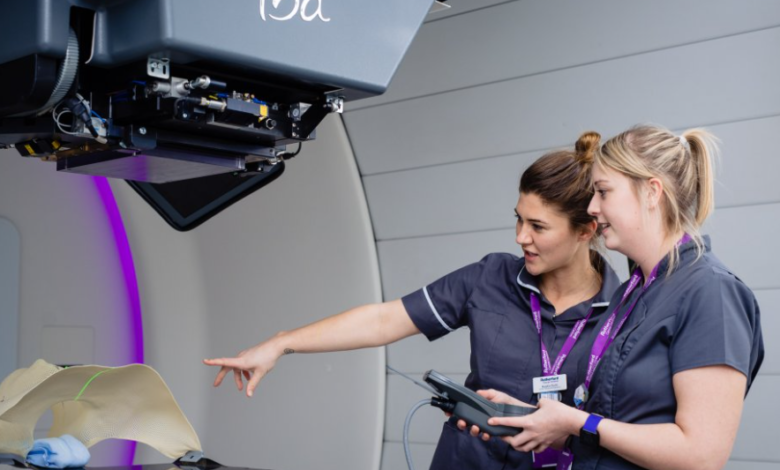Advancing Cancer Care With Specialized Expertise

Understanding The Role Of Medical Specialists
In the field of oncology, medical professionals with focused expertise are essential in providing high-quality care. A medical oncologist is trained to evaluate, diagnose, and manage cancer, offering treatment plans that are both personalized and evidence-based. Patients benefit from the guidance of a medical oncologist who can combine medical knowledge with practical strategies to address individual needs, improving treatment outcomes and overall wellbeing.
Importance Of Early Detection
Detecting cancer at an early stage is vital for effective management. Regular screenings, routine checkups, and prompt attention to unusual symptoms can greatly enhance the chances of successful treatment. Medical oncologists emphasize preventive measures and early intervention, which allows for a wider range of therapeutic options and a higher probability of recovery. Early detection is often a key factor in reducing the intensity and duration of treatment while improving prognosis.
Personalized Treatment Plans
Every patient’s situation is unique, and effective cancer care requires customized strategies. Medical oncologists create treatment plans that may include chemotherapy, immunotherapy, targeted therapy, or combinations of these approaches. Personalization takes into account factors such as tumor type, stage of disease, overall health, and patient preferences. By tailoring treatments to individual circumstances, medical oncologists can optimize efficacy while minimizing side effects, enhancing the patient experience throughout the care process.
Utilizing Advanced Diagnostic Tools
Technology plays a crucial role in modern oncology. Medical oncologists rely on advanced imaging techniques, laboratory analyses, and genetic testing to accurately assess the condition of each patient. These tools allow for precise identification of tumor characteristics and help predict which treatments are most likely to succeed. The integration of cutting-edge technology ensures that patients receive care that is informed by the latest scientific advancements.
Support For Emotional And Mental Health
Cancer can have significant emotional and psychological effects. Medical oncologists recognize that comprehensive care goes beyond physical treatment, incorporating mental health support as an integral component. Counseling, patient education, and support groups provide guidance, reassurance, and coping mechanisms. Addressing emotional needs is essential for patient resilience and helps individuals maintain a positive outlook throughout treatment.
Collaboration With Healthcare Teams
Effective cancer management often involves a multidisciplinary approach. Medical oncologists work closely with surgeons, radiologists, pathologists, nutritionists, and rehabilitation specialists to ensure holistic care. This collaboration medical oncologist allows for coordinated treatment strategies, ensuring that each aspect of a patient’s health—from diagnosis to recovery—is thoroughly considered. Multidisciplinary teamwork enhances treatment effectiveness and patient satisfaction.
See also: Emergency Ambulance and Its Role in Healthcare
Preventive Strategies And Lifestyle Guidance
Prevention remains a critical aspect of overall health care. Medical oncologists advocate for lifestyle choices that reduce cancer risk, including balanced nutrition, regular physical activity, and avoidance of harmful substances. Public awareness campaigns and patient education initiatives encourage proactive health monitoring and prompt consultation when potential warning signs appear. Preventive strategies combined with regular checkups contribute to long-term health and early intervention.
Advances In Research And Clinical Studies
Ongoing research and clinical trials are vital in the field of oncology. Medical oncologists participate in studies to explore innovative treatments and new therapeutic approaches. Clinical trials give patients access to advanced therapies while contributing to the growth of medical knowledge. Staying engaged with research ensures that patients receive the latest evidence-based care, leading to better outcomes and expanded treatment possibilities.
Patient Education And Active Participation
Educating patients about their condition and treatment options is essential for successful care. Medical oncologists provide detailed information regarding diagnosis, available therapies, and potential side effects. Informed patients are empowered to make decisions about their care, adhere to prescribed treatments, and actively engage in their recovery journey. Patient education fosters confidence, reduces uncertainty, and strengthens the partnership between patient and healthcare provider.
Conclusion
Comprehensive cancer care requires expertise, collaboration, and a commitment to patient-centered treatment. A medical oncologist provides guidance through early detection, personalized therapy, and integrated support, addressing both physical and emotional needs. By utilizing advanced technology, participating in research, and advocating preventive strategies, medical oncologists ensure that patients receive high-quality, holistic care. Their specialized knowledge and dedication help individuals navigate the challenges of cancer, promoting better outcomes and improving quality of life.



